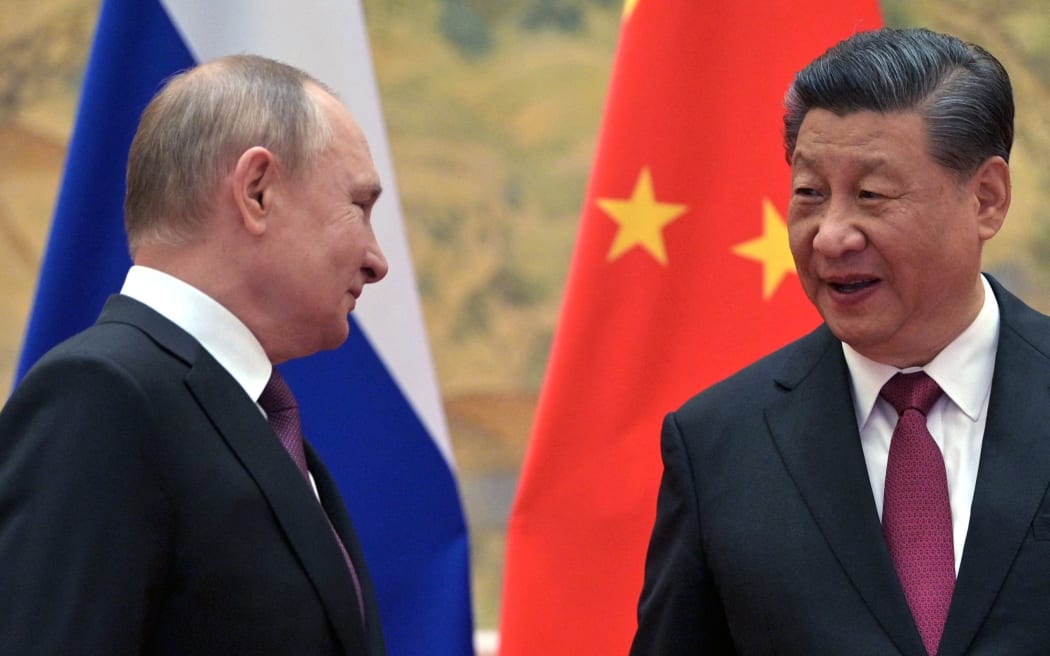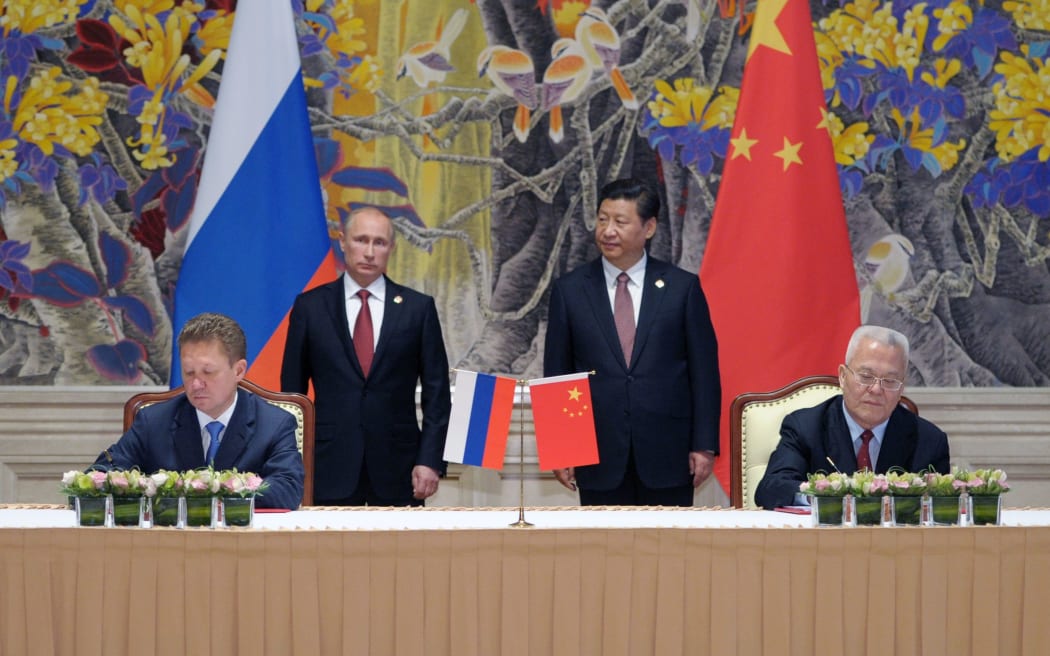Despite all the global changes of the last 30 years, there has been one constant - the relationship between Russia and China. In 1992 they declared themselves “friends”. In 1994 the relationship was upgraded to a “constructive partnership”; two years later it was “a strategic partnership” and by 2016 had become a “comprehensive strategic partnership.” They are now the Leaders of the Opposition to the US-led world order.

Photo: AFP
Historian Philip Snow’s China and Russia: Four Centuries of Conflict and Concord lands as the Moscow and Beijing partnership has weathered the shock of Russia’s invasion of Ukraine. It is a timely, entertaining and thorough account.
Snow charts the first tentative diplomatic missions as the Muscovy State learned of the Chinese in the 17th Century and Russian settlers fanned out across Siberia, through to today’s entente.
First contacts were not promising; neither side understood the other’s protocols or language. They resorted to Latin to communicate through Jesuit priests who had made it to Beijing.
Over time, the two empires rubbed against each other, but Snow points out that in four centuries Russia and China have never fought a major war.
It was helped on the Russian side by people like the improbable Father Hyacinth, an Orthodox priest sent to Beijing in 1808; he managed no services and no conversions in 20 years. But he did pour forth textbooks and dictionaries, useful for an early Russian university dedicated to China. It meant that of all the colonial powers encroaching on China from the 1800s, the Russians had some of the best knowledge of Chinese society.
It may partly explain how Russia dodged some of the opprobrium directed at the colonial powers for their carve up of a prostrate China in the 19th Century. (Today, that opprobrium is directed by Beijing away from its friend Russia). In the 1850s and 1860s Russia accumulated a vast expanse of more than a million square kilometres in then Outer Manchuria from the crumbling Qing empire. The Qing, themselves Manchu, seem to have viewed the Russians as “tricky” northerners who they understood, rather than marauding colonists like Britain striking at commercial southern China. At the negotiation of one “unequal treaty”, the British refused to hand over a gift to the Emperor, the Americans gave a textbook but the Russians had a supply of gifts, as protocol (and graft) required.
Snow is well placed to explain the mindset of the two states. As a boy he went to the Soviet Union during the Cold War with his parents, the novelists C.P. Snow and Pamela Hansford Johnson, guests of the Soviet Writers’ Union. He then discovered China; completing a PhD in Soviet-Chinese relations and writing books on China.
Communism in the two Powers
Perhaps the highlight of Snow’s history is when both countries became Communist.
It is hard to imagine two autocrats less suited to working together than the paranoid Stalin, and the suspicious Mao, says Snow. Stalin called Mao a “radish”, red on the outside, white in the middle. When Mao was summoned to Moscow after taking power in China, Stalin left him to stew in his dacha for more than a month. Stalin’s secret service studied his stools for clues as to his health. He was finally let out for Stalin’s 70th birthday; the communist press lauded this meeting of the two titans but Mao visibly sulked.
Little wonder that the two communist countries eventually severed relations.
Since the 1990s, Moscow and Beijing have reforged their relationship. When the Soviet Union collapsed, China was aghast. As Snow puts it, “The collapse of the party of Lenin! In the country of Lenin!” The pro-Western Yeltsin turned first to Europe but, as NATO expanded east, he looked instead to China, still isolated after Tiananmen Square. Russia supplied resources to China’s growing economy. Both shared a goal of ensuring the “-stans” emerging from the collapse of the Soviet Union were under control.

President Xi Jinping and President Vladimir Putin at the signing in Shanghai of an ageement between Gazprom and CNPC. Photo: AFP
Snow argues the relationship is now deeply embedded, but there are weaknesses. Xi and Putin are close but things are less friendly among ordinary people. The disparity in power causes unease. Russia’s economy is barely as big as China’s Guangdong province. Russia’s six million inhabitants in the stagnating Far East face 110 million in China’s neighbouring provinces.
But, for all that says Snow, both Moscow and Beijing are at pains to dampen any issues. He concludes “the dealings between China and Russia, twin Leaders of the Opposition, will remain for the rest of this century of decisive importance to the world.” He is likely right.
Philip Snow
China and Russia: Four Centuries of Conflict and Concord

